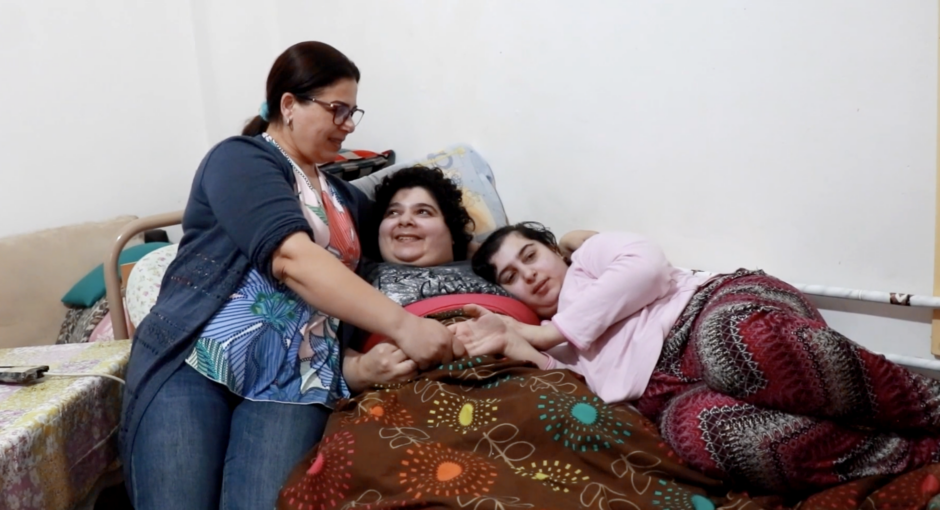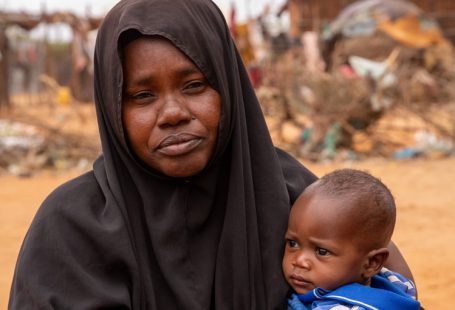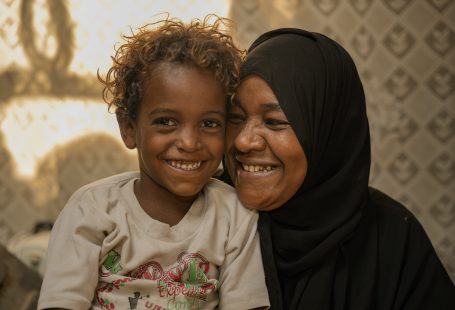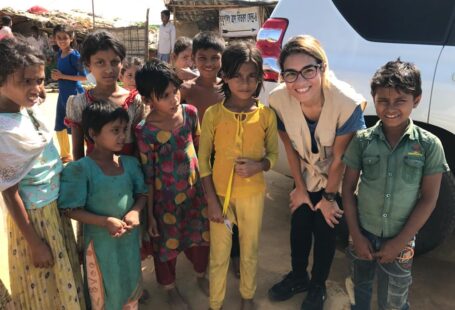Nawal is a Syrian refugee mother from Daraa. She has been living in Lebanon since 2014 and, like thousands of other refugee mothers, Nawal is the sole provider for her family and the sole caretaker of her two daughters Shireen and Lava.
Shireen, her younger daughter, is autistic. She survived breast cancer and today suffers from gland disease and severe diabetes. Lava, her older daughter, suffers from cerebral palsy. She can’t walk or move properly, stays in bed all the time and needs continuous care.
Nawal says: “I provide her with all the care she needs. Sometimes she tells me: “Do you know why I’m still living? I’m living only for you””.
After the security situation in Syria heavily deteriorated, Nawal had to take the difficult decision to flee. The journey, from Daraa to Lebanon, that should have taken them three hours, took months. Nawal always had to search for and take the safest route when she and her daughters needed to move. On the road, the health situation of Shireen and Lava was always the main concern for Nawal.
In Lebanon, prior to the economic crisis that began in 2019, life was still bearable for Nawal. Now, she worries about her ability to buy even bread, as it becomes increasingly expensive in Lebanon. Her financial situation is affecting her ability to provide proper food to the family, including during the month of Ramadan. “Honestly, the last time we had an easy time during Ramadan was around four years ago”, Nawal says.
She adds: “Things are getting harder for us. Honestly, it would be more difficult for me to cope without the cash assistance that I receive. I had a good education. But do you know what kind of work I do? I clean houses and help the elderly. I know that working for a living should not be embarrassing, but it’s not easy to not be able to find a job that matches your education and to do something else for a very low wage”.
While the economic crisis and food insecurity worsen the suffering of thousands of Lebanese and Syrian refugee families already in dire situation, Nawal tries to remain positive and hopeful: “I hope that this difficult period comes to an end, and that we can, once again, be able to make ends meet”.
Nawal’s family is among thousands of families that receive cash assistance from UNHCR. Zakat and Sadaqah donated to the Refugee Zakat Fund allow UNHCR to provide eligible beneficiaries among forcibly displaced people with much needed assistance.
In Lebanon, 97% of Syrian refugees are facing food insecurity, while 90% of them live in extreme poverty.
In the first ten days of Dhul Hijja and in anticipation of Eid al-Adha, your donation can make a big difference. Please visit the Refugee Zakat Fund website or download the mobile app available on the App Store and Google Apps, and help thousands of families like Nawal’s make ends meet.











Social Profiles